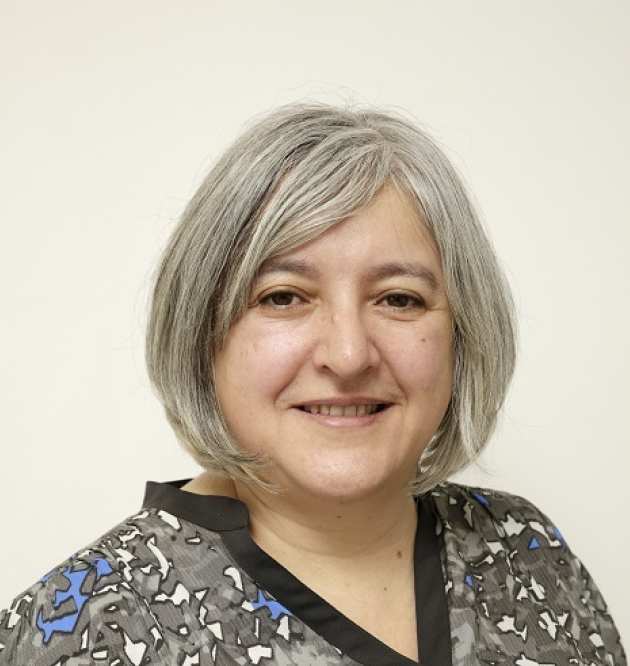 RESEARCH: CONTROL OF MOVEMENT AND TARGETING EXERCISE IN PEOPLE WHO ARE OVERLY FLEXIBLE AND IN PAIN OR HAVE JOINT INSTABILITIES
RESEARCH: CONTROL OF MOVEMENT AND TARGETING EXERCISE IN PEOPLE WHO ARE OVERLY FLEXIBLE AND IN PAIN OR HAVE JOINT INSTABILITIES
How did you get into research?
By accident. After I specialised as a MSK physiotherapist I started to get frustrated by the answers to my questions. Other physiotherapists seemed so certain about how we should treat our patients but that certainty was led by what different gurus told us. At that time a new MSc was advertised so I thought I’d go on that to find out what all the answers were. This opened my eyes to a world I didn’t know and it left me feeling much more comfortable about not knowing all the answers. It also opened doors for me and introduced me to people I would never have otherwise met. I could start asking questions to different experts who were generous with their time. When they didn’t know the answers, one neurophysiologist, Dr Harrison at UCL, invited me to work in his laboratory so he could help me to try and answer my questions. Eventually we won a grant for me to do a PhD. However, I never did get to answer my original question!
What do you enjoy about research?
The enquiry, the variety, the freedom from a fixed clinical timetable, the space to think, the mix between team work and independence, the problem solving, the satisfaction of finding a way around a barrier, developing ways to improve our care of patients, and now seeing and helping AHPs develop clinical academic careers. Supporting others to answer their questions and start and continue their clinical academic career.
What was the most difficult aspect of doing your PhD?
Getting the funding took time and the rejection was something I had to get used to. Once we found the funding I loved the highs and I loved the satisfaction of getting over the lows. But getting over the fear that I may not be good enough was one of the most difficult parts. The last four months writing up my thesis were definitely the most challenging. I got up, turned on my computer, turned off my computer and went to bed. Handing it in felt like a huge achievement.
What difference has your research training and experience made to your career?
I had always wanted to be a clinical physiotherapist and enjoy it. I didn’t know that it could be combined with research. Doing the MSc was the gateway to doing the PhD. From then on I have mixed being a clinician, teaching, doing and supervising research, which has led to a far more varied career which means that it has been more satisfying. I know I’ve impacted the lives of patients, researchers and clinicians and that wouldn’t have happened without my research training.
How has research changed your clinical practice?
I find it difficult to remember what I was like as a clinician before I was a researcher, so this is a difficult question to answer! I am one person with one mind during my time doing research as well as when I’m clinical. There are a lot of transferrable skills you use in both situations; personal communication skills and communicating to groups, project management, efficiency, enquiry, problem solving, creative thinking, ability to judge risk, knowledge of the literature and the power of that literature to influence practice, teaching/facilitating skills, mentorship skills, self-motivation, drive, independent thought, not fearful of change, used to barriers to change and tenacious to find ways to make change….and more. I hope I’ve also brought progression to the way we practice physiotherapy with people in pain.
What has made a difference to progressing your research career?
Having mentors who showed me to doors I didn’t even know were there. Through my career there have been certain people who have informally supported me. One key person was Ann Thomson who saw something in me that I didn’t see in myself. She supported me after the MSc and led me to teach. It was the opportunities that became available during that time that led to my introduction to my PhD supervisor. Clinical managers supporting clinical academic careers in the NHS. After my PhD it was the flexibility of clinical managers to employ me as a clinical academic, before the term clinical academic existed. The NIHR career pathway. This pathway gave me a professional direction and has led to my current role as lead clinical academic for therapies.
Where do you see your clinical academic career going over the next five years?
I would like to influence the clinical pathway and create effective treatments for people who have joint hypermobility. In addition, I hope to support AHPs to recognise that research awareness is part of normal practice; support AHPs who want to pursue clinical academic careers in the NHS and develop a clinical academic career path that goes alongside the fellowship pathways of our health research funders.
Prof Caroline Alexander, Lead Clinical Academic for Allied Health Professions, Imperial College Healthcare NHS Trust caroline.alexander@nhs.net
To download Prof Alexander's case study please click here: Prof Caroline Alexander: Case Study (PDF)
Useful links
Contact us
The CATO Team and Radiographers Incubator work on a Hybrid model, combining days in the office with days working from home – the best way to reach us is by email.
cato@imperial.ac.uk
radresearch@imperial.ac.uk
+44 (0)20 3313 7397

